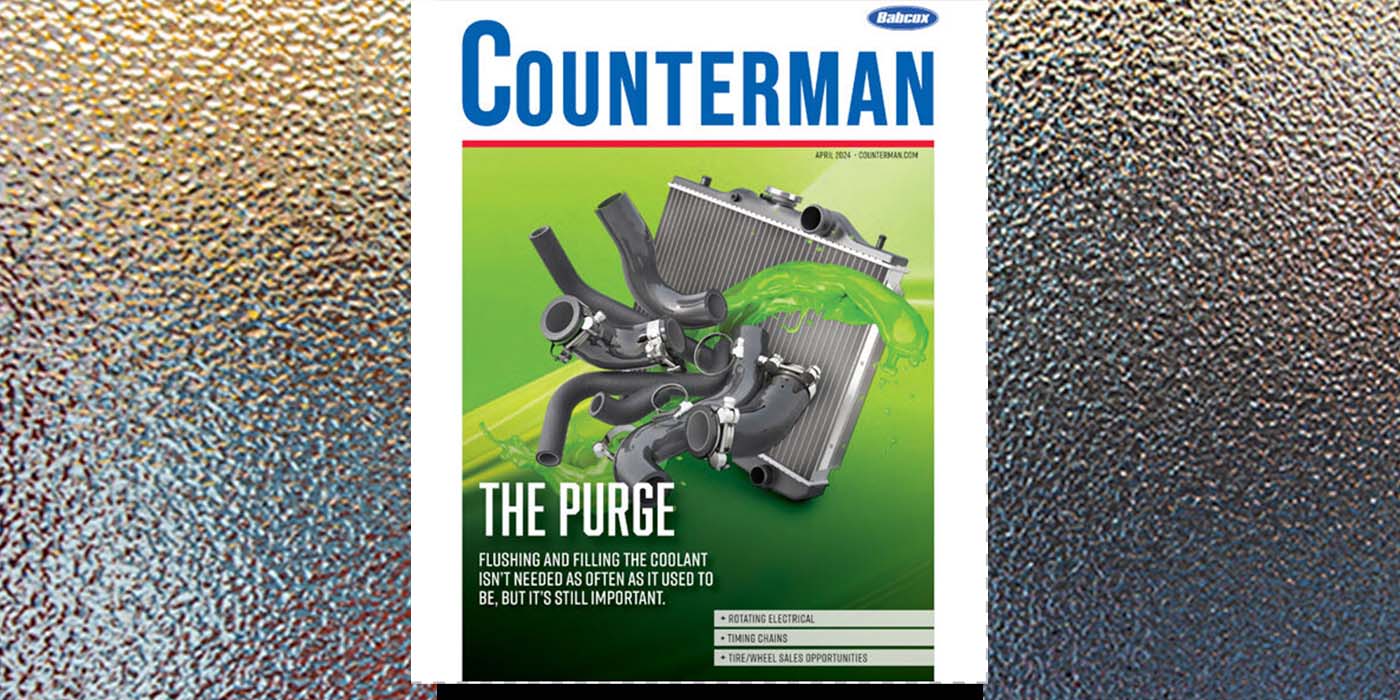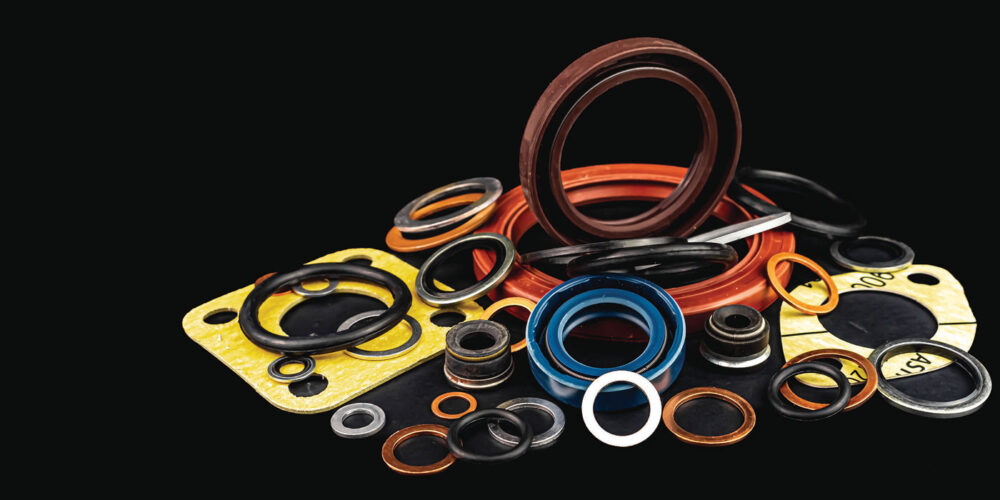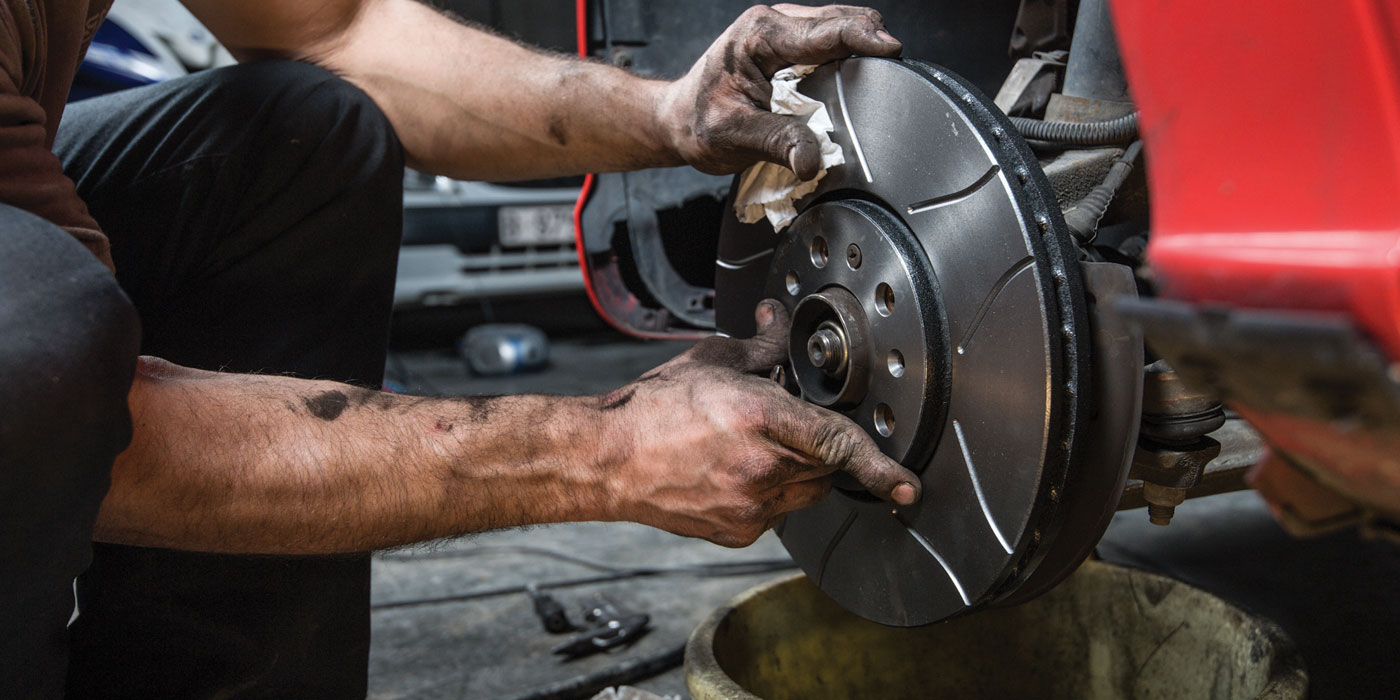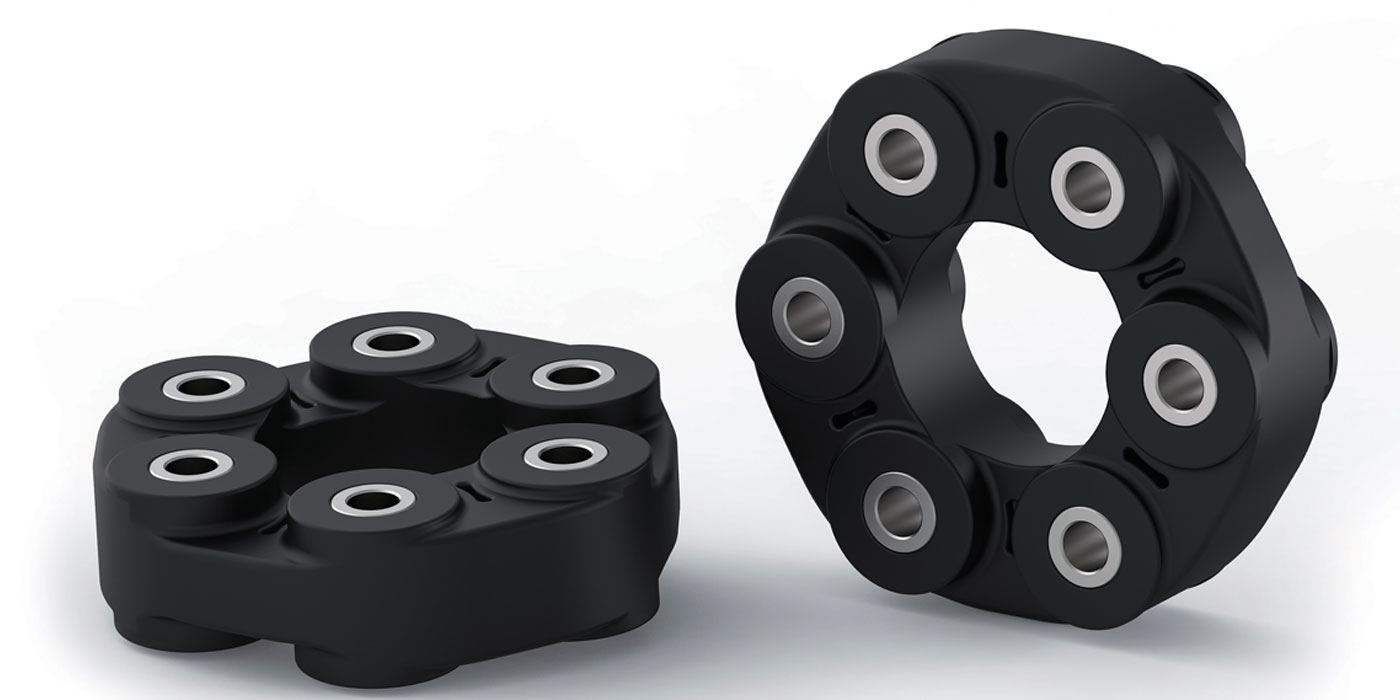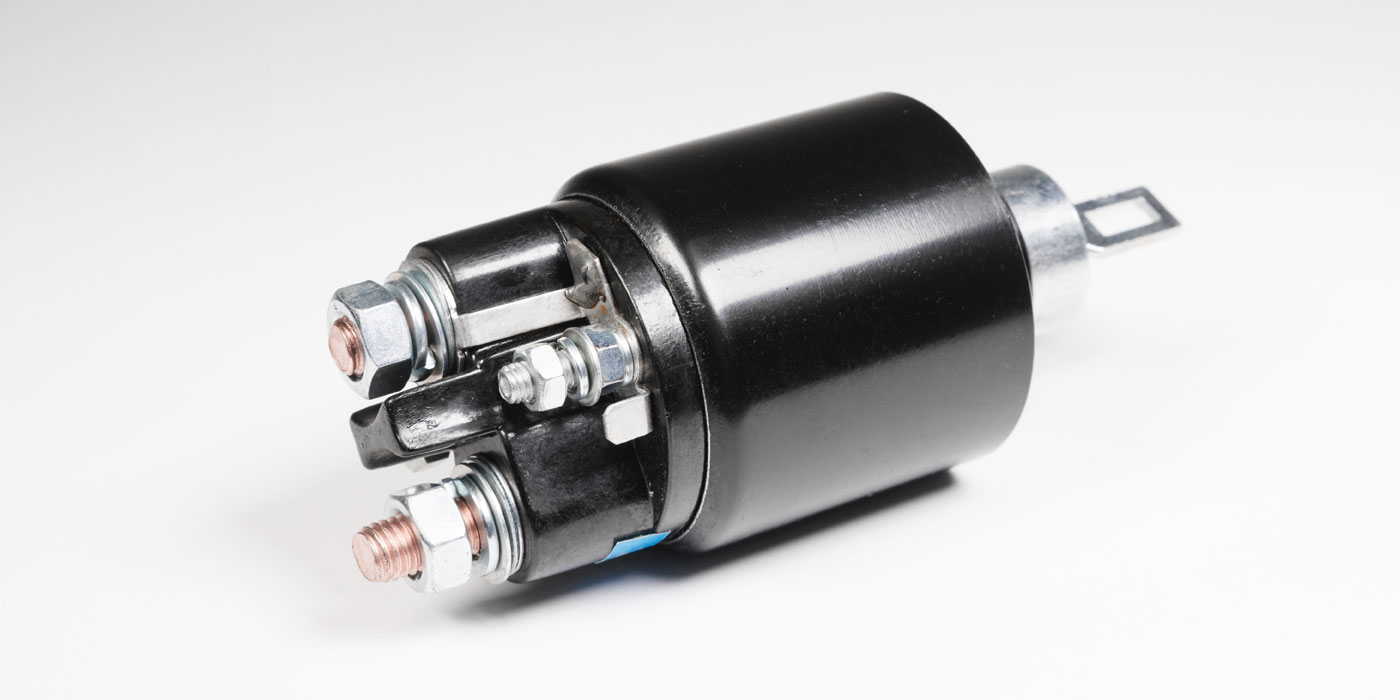Mechanics always hear the plaintive cry, “If only I had the tools, I could fix it myself.” Of course, by saying that, the prospective customer implies that the act of acquiring the tool automatically bestows upon him the knowledge of how to do the repair! The same might also be said of today’s often taken-for-granted counter professional.
Standing in the midst of a half-million dollar inventory and armed with a complex electronic cataloging system does not turn the new hire into a “professional” counterperson. Quite to the contrary, the untrained counterperson becomes a sorcerer’s apprentice, equipped only to cause consternation in the service bays of some unfortunate shop owner by sending a mechanic an inappropriate part.
PRODUCTS
It’s no secret that vehicle design is becoming much more complicated. We’ve added systems like anti-lock brakes, air bags, electronic four-wheel drive and electronic body controls, not to mention hybrid vehicle technology and cars that parallel-park themselves. Counter professionals, as well as the mechanics they serve, are becoming inundated with new products, parts and procedures.
Parts proliferation is making the problem even worse. Since many mechanics insist upon installing the OE-brand spark plugs, most jobbers must carry up to a half-dozen different spark plug lines with each containing hundreds of different part numbers. Inevitably the counterperson will be asked technical questions, such as what the difference might be between a single and double-platinum spark plug or whether a standard spark plug can be substituted for a platinum long-life spark plug. Or whether a hotter heat range might be recommended in some instances or if new spark plug wires or coil boots should be sold along with the new long-life spark plugs.
If an engine is equipped with a new ion or compression-sensing ignition system, there can be a night-and-day difference between selling the right or wrong spark plugs. What if a counterperson has never heard of a compression-sensing ignition system? Perhaps it’s time for a little professional training!
The fact is that many automotive parts manufacturers spend millions of dollars each year on product research and development and even more on manufacturing and distribution. Very little time and money, however, is spent on providing product knowledge to the counterpeople who must make dozens or perhaps hundreds of product recommendations each day to their professional and amateur customers.
THE PROFESSIONAL MARKETS
Given the current level of vehicle technology, the professional market itself is changing. Twenty years ago, most independent shops were repair-based and depended largely upon emergency repairs such as starter, alternator, battery, drive belt and cooling system hose replacements for the bulk of their shop revenues.
Due to modern technology, each of these components has become infinitely more reliable. Years ago, starters, alternators and batteries often failed in less than 50,000 miles of service. Drive belt and cooling system hose replacements were recommended as preventive maintenance every two or three years. Today, however, the majority of these components rarely fail at less than 100,000 miles of service. In fact, most vehicles will operate for 100,000 miles without any maintenance other than recommended lubrication and filter replacement intervals and one brake and tire replacement.
Consequently, the independent market is generally shifting its emphasis toward preventive maintenance and car care issues. Fluid maintenance has taken the place of belt and hose replacements. Fuel system cleaning has taken the place of carburetor rebuilding. The annual tune-up has given way to the 100,000-mile spark plug and timing belt replacement. Stainless steel exhaust systems have forced exhaust system manufacturers to re-focus their energies on building replacement catalytic converters. And higher-quality OE McPherson struts and shock absorbers have reduced the need for replacing ride control components within the first few years of vehicle life.
The aftermath of increased vehicle reliability is that while advanced technology is requiring an increasing level of equipment investment and expertise on the part of the advanced technician, advanced vehicle technology diagnosis and repair is becoming a smaller part of the total automotive service market.
My seat-of-the-pants estimate is that 90 percent of service and repair work passing through most service bays is relatively “low-tech” while only about 10 percent involves advanced vehicle diagnostics. Consequently, more mechanics with little formal training might be filling the lower echelons of the preventive maintenance market. This trend would increase the demand for sales-based product knowledge because more technicians might not be well-versed in modern vehicle technology.
PRODUCT KNOWLEDGE
The lack of product knowledge at the point of sale can be catastrophic. A recent and very extreme example involves an independent shop experiencing a cylinder head gasket failure within 20,000 miles of installation on a mid-90s Toyota pickup equipped with a 22R engine. A cursory examination indicated that the cylinder head had been resurfaced with a conventional fly-cutting cylinder head machine. Modern aluminum cylinder head technology requires a very smooth, almost mirror-like finish on the cylinder head to accommodate different thermal expansion rates between the aluminum cylinder head and cast-iron engine block.
I agree that the problem might sound a little high-tech on the part of the counterperson selling the gasket. On the other hand, a service bulletin or catalog notation warning of the need for correct cylinder head resurfacing procedures would go a long way toward preventing customer dissatisfaction with what would otherwise be a quality cylinder head gasket product.
Similarly, many DIY customers are shocked at the price of the new long-life premium spark plugs required by modern engines. The uninformed buyer might see little difference between the $2, steel-shelled conventional spark plug and its $10, nickel-plated companion. Here again, a sound product knowledge would indicate that conventional steel-shell spark plugs have a very high tendency to ruin cylinder head threads when removed 30,000 miles later.
PRODUCT INFORMATION
In my opinion, our current problem with counterperson training is not the availability of information, but the lack of consistent delivery. Brake friction manufacturers would profit if counterpeople were better informed about the physical characteristics of their various grades of friction materials. For example, which disc brake pads should be recommended to reduce brake dust or to eliminate brake squeal? Which pads provide the greatest stopping power and heat resistance for heavy-duty towing applications? And will lower-priced grades of friction last 30, 50, or 75 percent as long as the premium grades?
Next, let’s look at common engine oil. Because modern engine technology is reducing crankcase ventilation flows and lubrication system design, sludging and valve train lubrication are now becoming major issues. To combat this, many auto manufacturers are requiring oils with very specific lubricating and sludge-resisting qualities for their engines. Here again, product knowledge is vital because a counter pro should know whether a particular brand or grade of oil will meet a specific manufacturer’s engine requirements.
COUNTER PRO EDUCATION
Although electronic cataloging has greatly reduced the interaction between the mechanic and his counterperson, it’s important to remember that when the phone does ring, it’s because the mechanic needs professional help in sourcing or selecting a replacement part or product. For me, nothing is more frustrating than having to make a special trip to a parts store to help a beginning counterman find the part or product that I so badly need.
To get in step with 21st century demands, I recommend that training programs should be designed to bring counterpeople up to date with the parts and products they sell. The training could consist of small night classes, similar to those offered by jobbers to their professional mechanics or different conventions and seminars. Even something as simple as reading a monthly newsletter or magazine that compiles the characteristics and uses of various new products changes would help counterpeople stay informed. After all, this is the 21st century and it’s time for today’s counterperson to become part of the revolution affecting modern vehicle technology.


